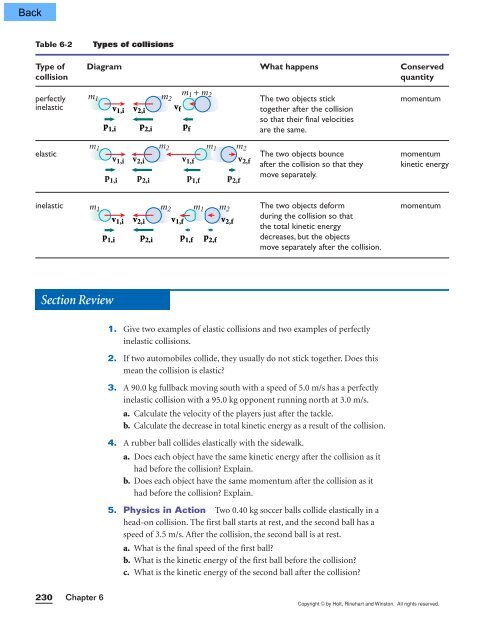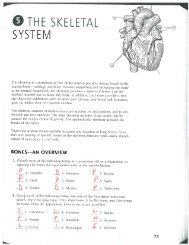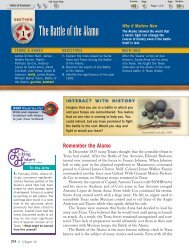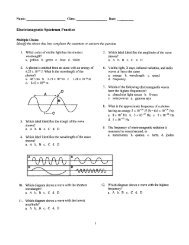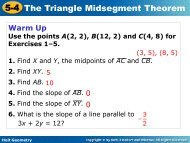Create successful ePaper yourself
Turn your PDF publications into a flip-book with our unique Google optimized e-Paper software.
The Ongoing Quest for Truth and Justice:Enacting and Annulling Argentina’s Amnesty Laws2009transfer of power’. 142 The military tried to resist these demands, and expected to use theirremaining months in power to ‘negotiate with the politicians in order to ensure theacceptance of at least one of their conditions – namely, no investigation of human rightsviolations’. 143 However, a divided military was unable to negotiate from a unified position,and according to Vacs, ‘the hard-liners’ threats of implementing an internal coup andnullifying the elections if an agreement were not reached lacked substance because of theweakness of their position in the wake of the Malvinas defeat’. 144 Consequently, the militarybowed to pressure, and Alfonsín was inaugurated on 10 December 1983, without the newadministration offering ‘any explicit guarantees to the military’. 145The new president faced enormous difficulties as military rule had left Argentina in a deepeconomic crisis with a population divided in its views on the military’s actions, and withlarge numbers of individuals who could potentially be implicated in its crimes. 146 Alfonsínwas, however, fortunate that the military had been weakened by their defeat in theMalvinas/Falklands conflict and was therefore initially unable to oppose his policy of limitedaccountability. 1475. THEORETICAL UNDERPINNINGS OF ALFONSÍN’S HUMAN RIGHTS POLICY:DEVELOPING ‘THE THEORY OF THE TWO DEMONS’During his election campaign, Alfonsín had begun to outline the human rights policy that hisgovernment would pursue once in office. In designing this policy, he and his advisers soughtto address two key dilemmas. Firstly, whilst they were sympathetic to the demands fromcivil society for truth and justice, they also felt it was necessary for the newly democraticstate to have an effective military under civilian control. Consequently, they sought tobalance accountability for individual military officers with the preservation and reform ofthe armed forces as an institution. 148 Secondly, they were conscious that repudiating themilitary’s actions without condemning the left-wing violence of the 1970s could increase the‘chasms that separated Argentine society’. 149 Therefore, they sought ‘to condemn the roleof revolutionary armed organizations without adding to the suffering of many of thesurviving members who had endured loss of family, torture, and disappearance’. 150 In142 Vacs (n 83) 32.143 Ibid 32.144 Ibid 32.145 Ibid 32.146 Alfonsín (n 8) 16.147 Sriram (n4) 117.148 Carina Perelli, ‘Settling Accounts with Blood Memory: The Case of Argentina’ (1992) 59 Soc. Res 415, 431.149 Ibid 431.150 Ibid 431.22


